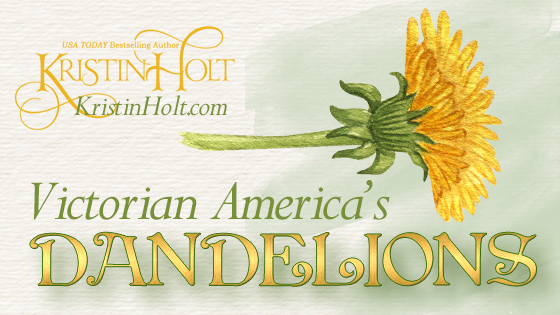
by Kristin Holt | May 31, 2022 | Articles
Dandelions were so much more than weeds to our Victorian ancestors. Not only were the tender plants sought for springtime vegetables and salads, but for tea, coffee, wine, beer, and prominent medicinal value. 19th century cook books and newspapers share the Victorian-American viewpoint on the value of dandelions from blossom to root. Recipes for edibles and curatives, advertisements, and more!
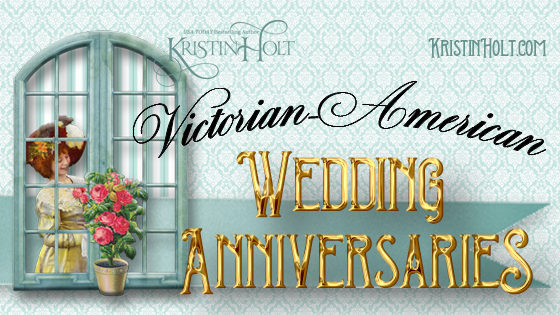
by Kristin Holt | Mar 6, 2020 | Articles
Victorian-American husbands and wives celebrated their wedding anniversaries in a variety of ways. The wealthy held sumptuous dinners and balls in honor of their years of wedded bliss and their guest lists and published itemized gifts showed it! A variety of late-nineteenth-century American etiquette governed much about the Victorian-American Wedding Anniversary, from invitation to gifts to entertainments.
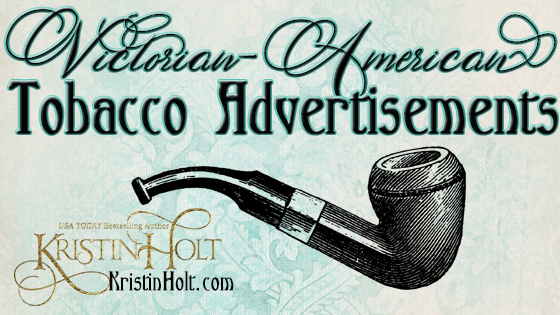
by Kristin Holt | Feb 15, 2020 | Articles
Advertisements from vintage newspapers and periodicals shed much light on the tobacco habits of our nineteenth century United States ancestors. Each ad cites sources, dates, and provides everything from brand names to prices to general categories to help us draw conclusions about tobacco use in the Victorian United States.
Why? Because accurate backdrops make for exciting fiction!
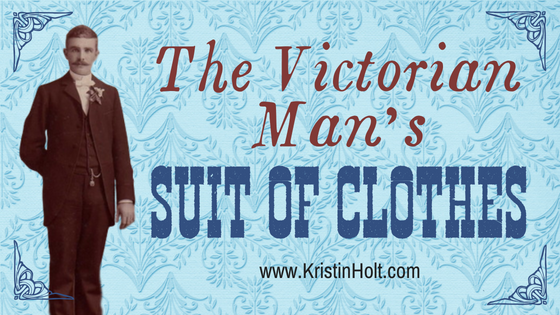
by Kristin Holt | Jul 3, 2018 | Articles
A man’s proper suit of clothes was worn by gentlemen, bankers, clerks, professionals… virtually every man except those who labored manually (such as miners). Given men owned so few items of clothing, they certainly wore what they had, despite the demand. Levi Strauss developed the original “Levi’s 201’s” and “Levi’s 501’s”, built to last in the clothing-destroying mines. Compare and contrast the “suit of clothes” with Levi’s originals.
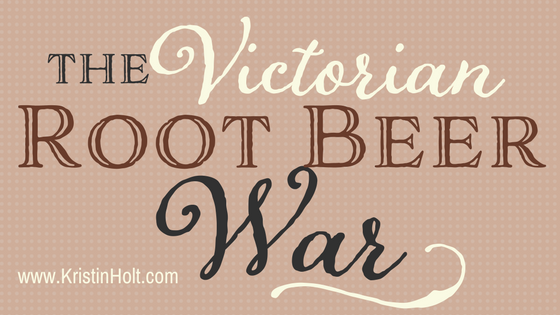
by Kristin Holt | Jul 27, 2017 | Articles
Hires Root Beer, from its debut in the mid-1870s, was sold as a refreshing beverage (with no medicinal expectations). The name, chosen by Charles H. Hires, to appeal to tough coal miners, who’d never find “root tea” attractive, ended up causing Hires Co. a bit of trouble with Women’s Christian Temperance Union (WCTU). Who knew that “beer” in a name, and the common knowledge that root beer extract was percolated with alcohol (though the finished drink had no more than a whole loaf of homemade bread), to cause banning of the beverage?













